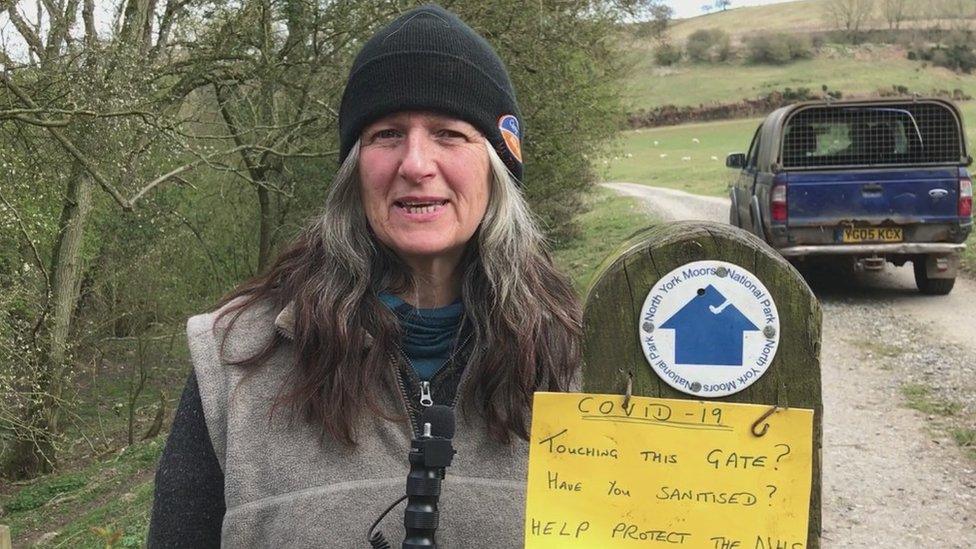Coronavirus in Northern Ireland: Volunteers speak out on lockdown work
- Published
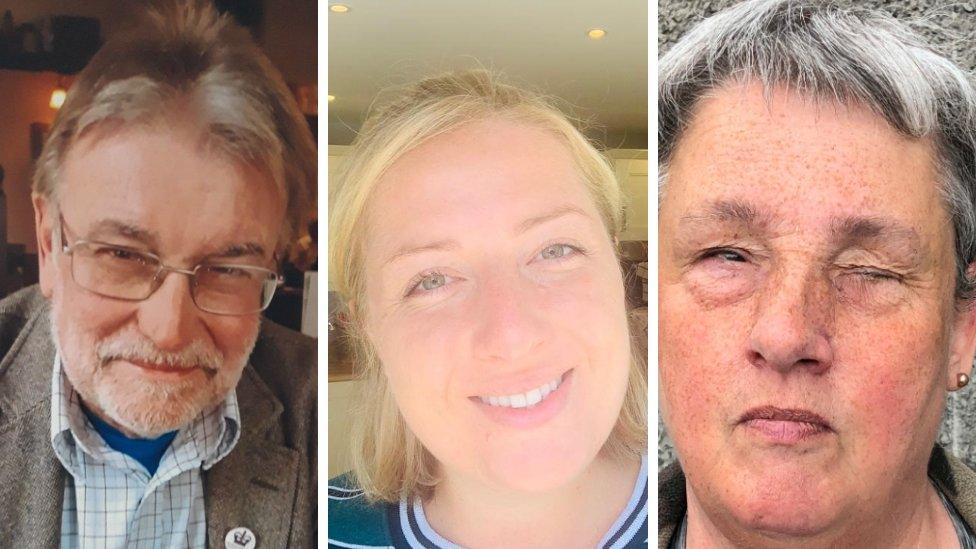
Nick, Tanya and Sharon are just three of Northern Ireland's army of volunteers
In March, before coronavirus lockdown measures began, the Irish prime minister paraphrased a quote by Winston Churchill.
"Never will so many ask so much of so few," said Taioseach Leo Varadkar in a televised speech to the nation.
But while front-line and key workers have been praised for carrying the Republic of Ireland and the UK through the crisis, there are also unsung heroes.
Some 4,000 people in Northern Ireland registered in a campaign launched for those who wanted to do their bit during the Covid-19 pandemic., external Recruitment has now been paused.
Twice as many people as Volunteer Now would hope to sign up in a year contacted the organisation in a three-week-period, with offers to deliver food, visit the elderly and make sure those shielding did not feel isolated.
BBC News NI speaks to three volunteers about their experiences.

Food delivery with a smile
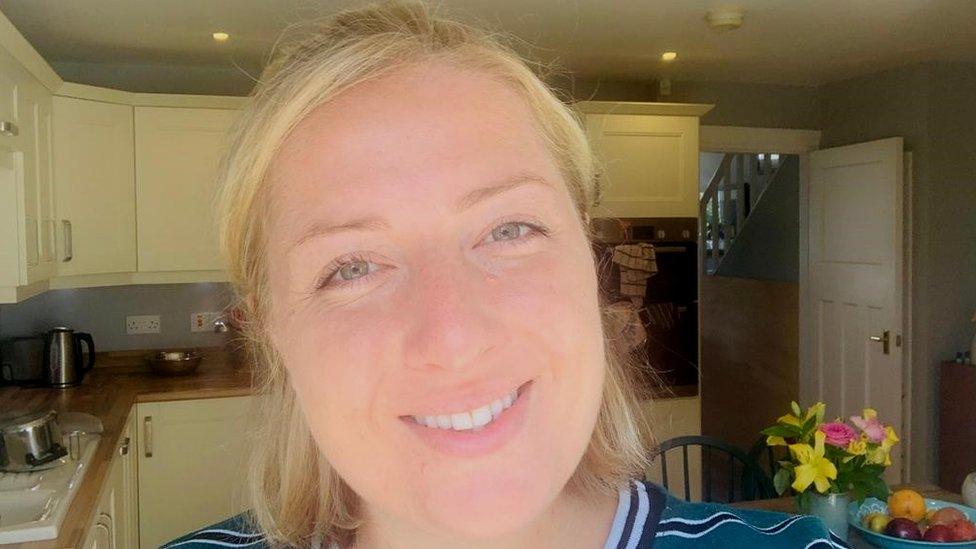
Tanya Rosen works in the film and TV industry and became unemployed a result of the coronavirus crisis.
"I was working on the west coast and when all productions were shut down I came back to Belfast," the 28-year-old told BBC News NI.
Straight away, she felt the urge to do what she could to help.
"I felt a bit helpless," she said. "For myself it's so far from a selfless act - it makes me feel a little bit needed and useful.
"My work is usually full on and I felt a bit like I went off the edge of a waterfall when it got shut down."
Although Tanya had volunteered in the past, she had never been able to make a regular commitment and she and her housemate both signed up to the scheme.
Initially, when she tried to volunteer everywhere seemed inundated with offers of help.
"I then got set up with my counterpart - a fantastic lady who is self-isolating and lives just around the corner," recalled Tanya, who is originally from Galway.
Tanya receives a list of what her neighbour needs and brings it to her every week.
"She is really so wonderful and I am so glad to have met her - it's very sweet getting to see her.
"All my family are in different places - my parents are in counties Galway and Clare and I have grandparents in New York.
"I don't have the opportunity to look after them and do their shopping.
"I'm doing this and hoping someone else is doing that for them and the lady I am shopping for, maybe her children who are farther afield, are doing it for someone else.
"It's just paying it forward."
One thing she had learned was that volunteering does not take up as much time as people think, said Tanya.
"I could easily do this and work, and I would like to continue on volunteering."

Phone a friend
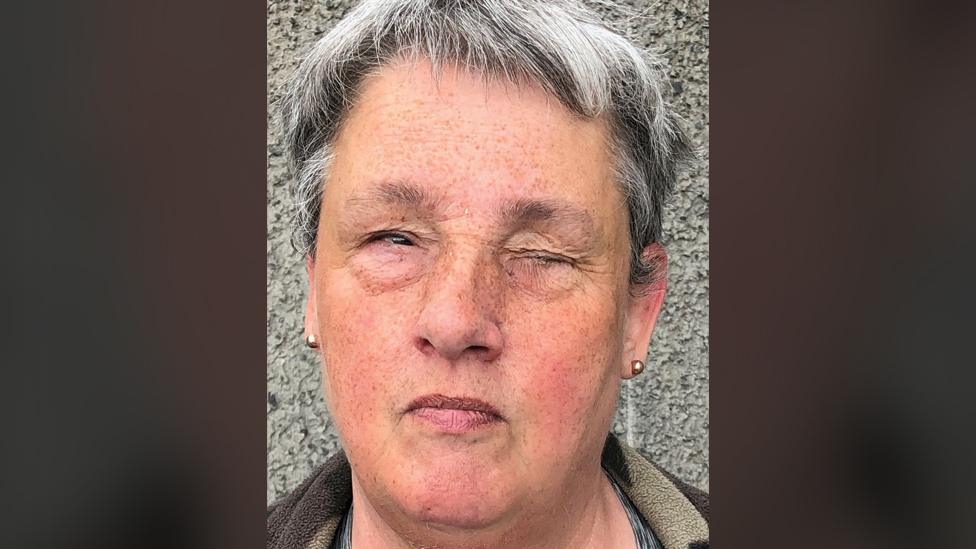
Sharon Neill volunteered as a telephone befriender when the pandemic reached Northern Ireland.
Sharon is medically retired, visually impaired and has been shielding because of stage-four asthma.
"I've worked all my life and I don't see why being unemployed means I can't do something for someone else," said the 54-year-old from Annalong in County Down.
Every week since the lockdown began, she has been phoning people who are self-isolating and have been referred by organisations such as Volunteer Now and Mourne Matters.
"I talk to them about how are they getting on, how are they coping mentally, if they need help or have they any concerns," she said.
"Just chatting is so beneficial to both of us. There are many people where I might be the only voice they hear in a day.
"I can hear the difference in someone's voice when they come off the phone.
"I can speak to someone who is going through a horrendous day and at the end of the call they say: 'You don't know how much of a lift hearing your voice has given me.'
"People really need to know about the benefit of volunteering," said Sharon, who speaks as both a volunteer and a vulnerable person.
How communities have pulled together during the crisis is one of the positive things to come out of it, she added.
As lockdown eases, however, she will still not feel comfortable going on public transport or to the shops.
"As a blind person, with social distancing, that will be very difficult for me to do," she said.
But that won't stop her keeping up her volunteering as a befriender.

From helped to helper
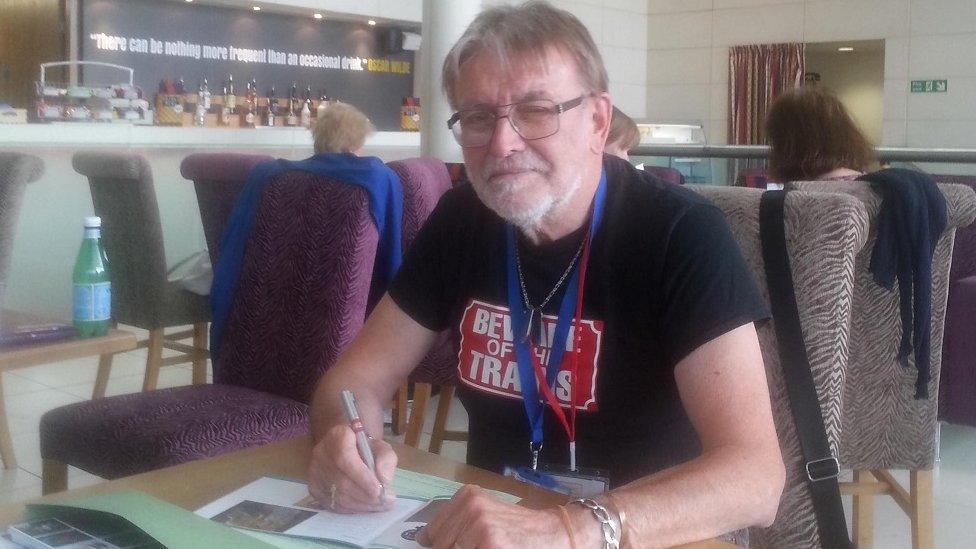
Nick Menhinick is no stranger to volunteering, and has felt the benefit himself.
The 75-year-old understands the feeling of loneliness more than most because when he arrived in Belfast 13 years ago, he knew nobody.
"I was in a very poor way," recalled Nick, who is originally from England and now lives in Belfast.
"I spent the first few months in a Salvation Army hostel. I had no friends or family near and was very isolated."
He was helped by charity organisations, he said.
"I then got involved in volunteering almost as a way to combat loneliness - I used it as a crutch and yet I am able to help others."
Nick is now busy with several groups, including one set up to assist senior men in south Belfast combat loneliness.
Usually volunteering involves getting out and socialising, but now it can involve social media, texting and video conferencing as well as phone calls.
Nick has been hosting bingo sessions on Zoom where players compete for bars of chocolate.
"I make a dozen calls a day to make sure people are getting shopping or need help," he said.
But while technology was helpful, there were "digital have-nots" as well as "digital haves".
"My generation is not the IT generation, and some do not have access or can't use it," he said.
Self-shielding himself, Nick has found some of the old loneliness set in.
"I'm a victim myself as my family is scattered around the world. I am suffering from lack of contact even though I am busy talking to people every day."
Many people he had spoken to found government information confusing, added Nick, because different parts of the UK have different lockdown measures.

Concerned organiser
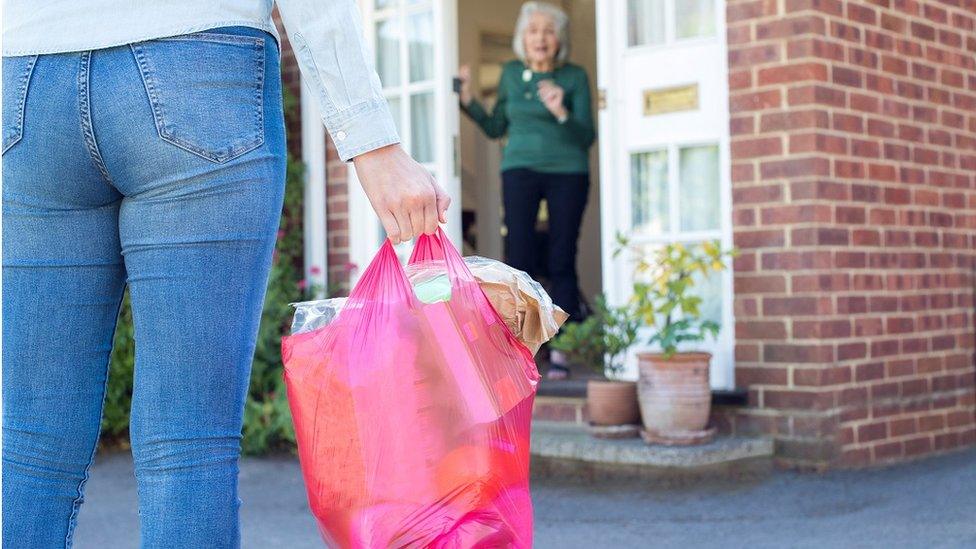
Denise Hayward, chief executive of Volunteer Now, said the response to the scheme had been "a testament to human nature".
"There really was deluge of people, not just in Northern Ireland - it is a worldwide phenomenon," she told BBC News NI.
"It's very encouraging that instead of battening down the hatches and self-preservation so many people have wanted to help.
Due to the lockdown, many befriending services that had involved personal visits were now conducted over the phone, she said.
"There are people who would prefer a cup of tea in person and hopefully we will get back to that, but in the meantime phone befriending is the next best thing."
And as the world emerges from lockdown, Denise said there was a new challenge for the voluntary sector.
Many volunteers at charity shops - which provide essential funding for the sector - are older people with health conditions.
There are concerns some may have to continue shielding and not return to their voluntary positions.
"The concern now is how to fill those gaps in volunteering."
Volunteer week runs until Sunday
- Published23 May 2020
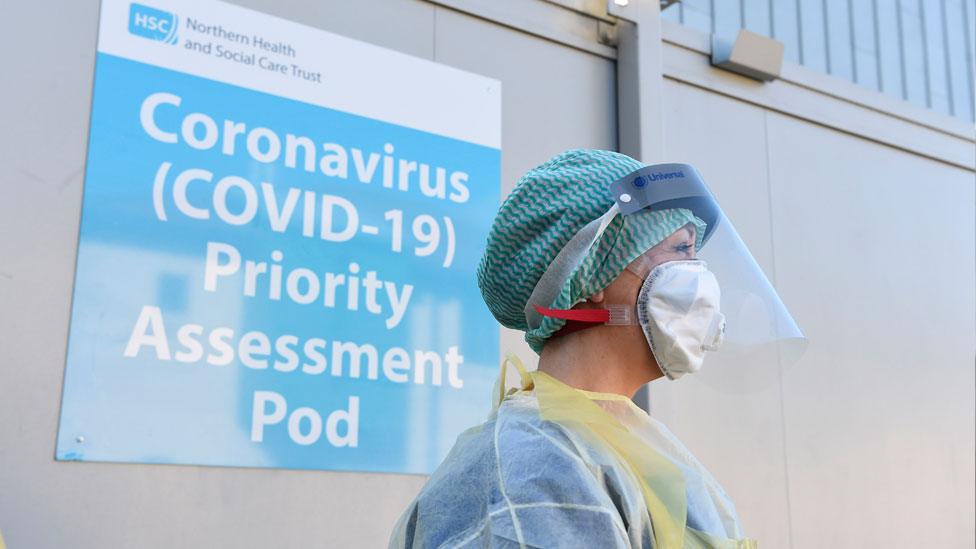
- Published14 April 2020
